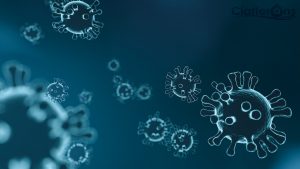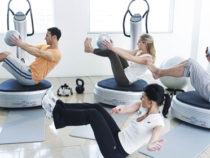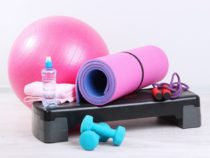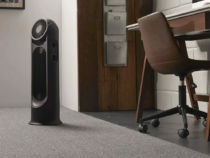Healthy Hacks on Protecting Yourself During the Coronavirus Outbreak
Nowadays, the coronavirus disease is spreading in Australia and around the world. Although there’s no vaccine to prevent this disease yet, you can still maintain good health habits to avoid getting infected. First things first, let’s take a closer look at what COVID-19 coronavirus is and how it spreads.
What is Covid-19 Coronavirus?
Today, most people will tremble while hearing this coronavirus disease 2019, but you probably don’t know much about it. It is a kind of pathogen that mainly causes respiratory and intestinal diseases. These virus particles have regular rows of bumps on their surfaces which make them look like a king’s crown, so it’s called “Coronavirus”. The covid-19 coronavirus is an acute respiratory infectious pathogen emerged from an animal source, according to the Department of Health and Human Services (DHHS).

How Does it Spread?
The coronavirus disease is mainly transmitted through respiratory droplets and close contact. It will also spread through air aerosols in a relatively closed space.
Sneezing, coughing, talking droplets, and closing contact with the air exhaled by an infected person, all these can lead to the continuous transmission of this disease. The droplets from sneezing, coughing and speaking are mixed in the air to form aerosols, which can also lead to infection after being inhaled by others.
The residual virus in the air or on the surface of the objects can also cause infection. For example, people may directly or indirectly come into contact with these viruses, contaminating their hands, and then touch the mucous membranes of the mouth, nose, eyes and more, such as digging the nostrils, rubbing the eyes, etc.
Symptoms of COVID-19 Coronavirus
It is difficult for average citizens to distinguish coronavirus from the common cold because of the high similarity between them, but there are some differences:
- Fever (Does not subside easily and lasts more than 48 hours)
- Fatigue (The whole body is aching, tired and weak)
- Dry cough (Some with phlegm and wheeze)
- Shortness of breath (Appears gradually)
- Dyspnea (Severe symptom)
Hacks to Protect Yourself Against Coronavirus
In fact, this COVID-19 is not as scary as we think. There are lots of ways to help stop the spread of germs and prevent respiratory illnesses like wearing a medical mask and washing your hands. Whether you are an adult, a child or an elderly person or even a pregnant woman, you can stay safe and healthy by developing good hygiene habits.
The Elderly
The elderly are more susceptible to the epidemic because of their weak resistance. Seniors had better:
- Wash your hands regularly
- Wear a medical mask when you go outside
- Take your temperature in the morning and evening
- Eat thoroughly cooked food, especially meat and eggs
Experts suggest that the elderly should reduce going out and gathering under these specific conditions. In addition, places where older people live should be disinfected and ventilated periodically.
Besides that, the elderly can relieve your anxiety by fully understanding the knowledge of epidemic prevention. If possible, seniors can do some moderate exercises to improve the immunity.
Children
Parents should take special care to protect newborns and infants. For example remember to wash your hands before and after caring for them and do not sneeze, cough or exhale at them.
Many younger children don’t like to wear masks. As their parents or guardians, you should take the initiative to wear masks. When coughing or sneezing, you should cover your mouths and noses completely with paper towels, and throw the used paper towels into the closed dustbin immediately and then wash the hands.
Parents or guardians can also make interesting videos or draw attractive pictures to let your children know the dangers of coughing and sneezing and the benefits of wearing a mask.
For older children, experts recommend that they should learn some knowledge about the disease and had better go to the ventilated, less crowded and open outdoor places for activities. At the same time, parents should teach your children not to touch the eyes, mouth and nose with unwashed hands to prevent infection.
Pregnant Women
Pregnant women with weak immunity are also prone to getting infected. You should follow the tips below to protect yourself:
- Keep good health habits and wash your hands frequently
- Keep houses properly ventilated and maintain proper temperature and humidity
- Wear medical masks and gloves when going to the hospitals or clinics
- Drink clean and safe water, exercise properly and acquire adequate sleep
- Eat more fruits and vegetables which are easy to digest and rich in vitamins
- Don’t share towels, cups and other daily necessities with family members.

If a pregnant lady has fever, cough, and other symptoms, they should go to the clinic for diagnosis and treatment at the first time. Don’t use medications without the guidance of the doctor for health and safety.
Other actions that people of different ages can take:
- Always wear a mask (disposable or medical) mask when going out
- After going home or to the office, wash your hands with soap and water for no less than 20 seconds.
- If soap and water are not available, use hand sanitizers which contain at least 60 percent alcohol to clean your hands.
- Avoid touching the objects and surfaces when going out
- Keep a safe distance from others, especially people who are sick
- Don’t touch your eyes, mouth, nose before washing your hands
Conclusion
In the face of the epidemic disease, we should treat it rationally, keep healthy living habits and maintain a positive attitude towards life, and take the above steps to protect ourselves. Hope these tips can help you stay safe and healthy.















